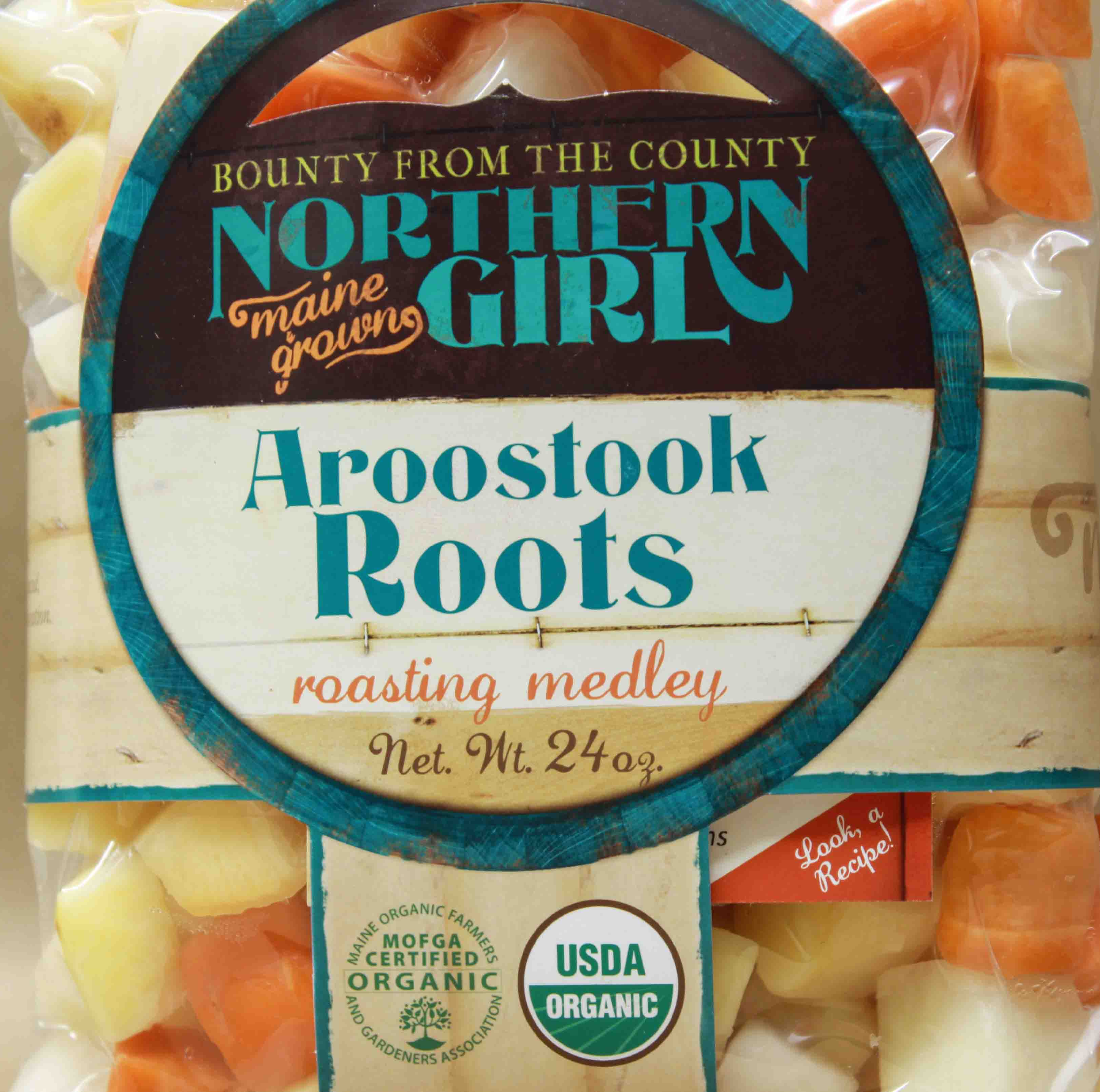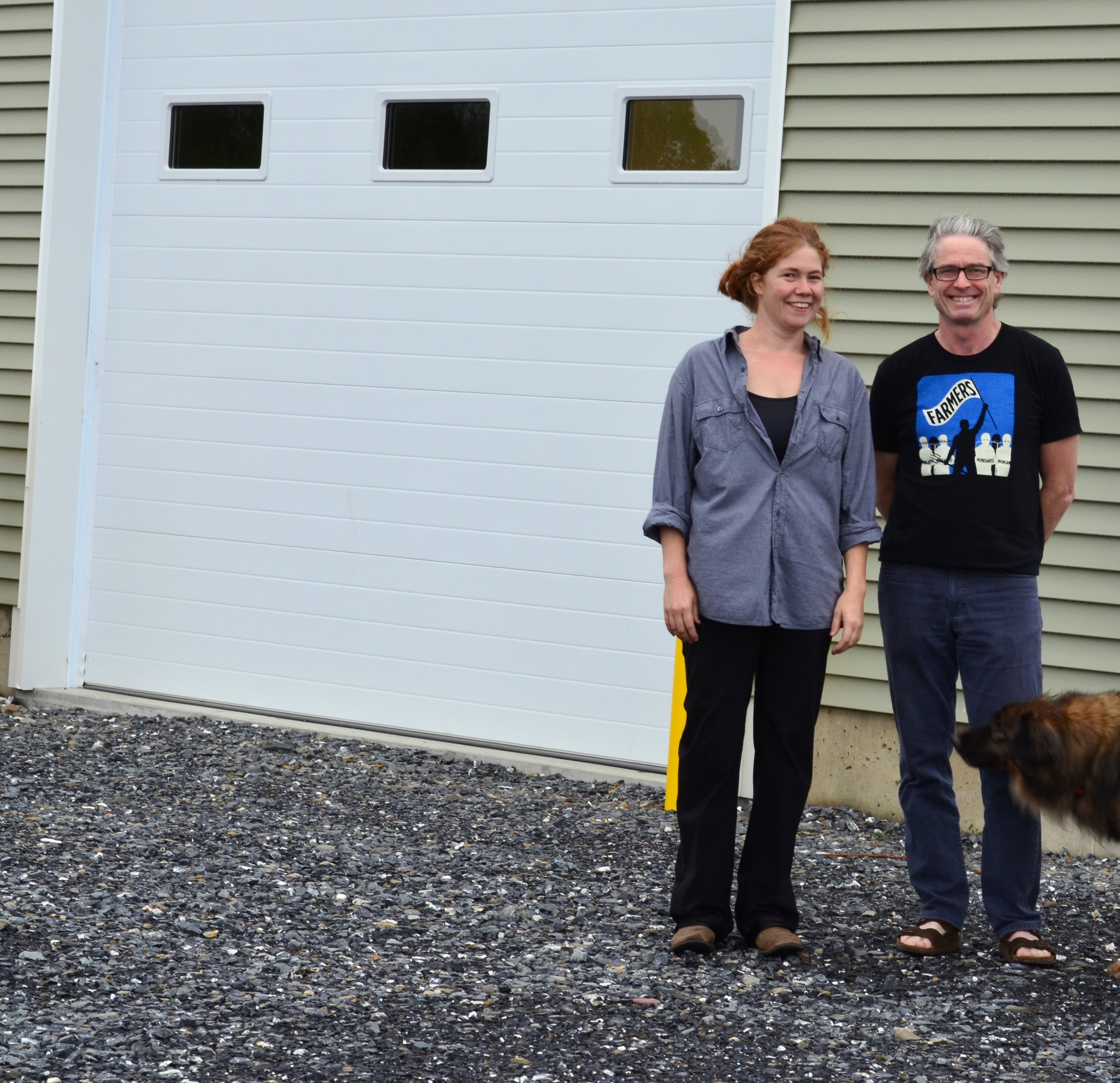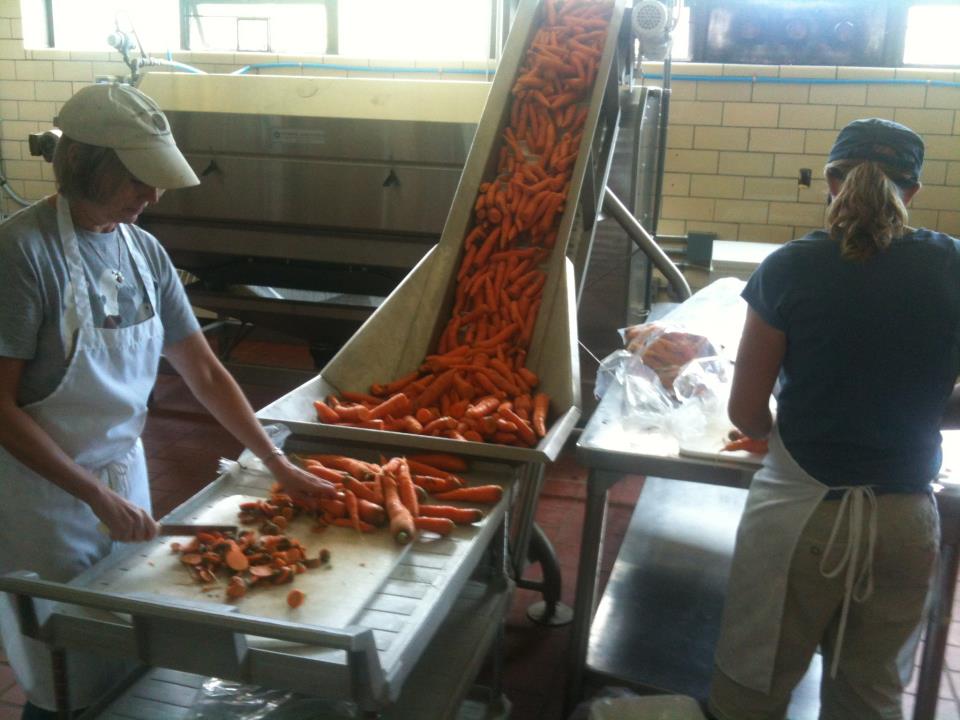True to Their Roots
How Maine’s Northern Girl is reinvigorating the local food economy one beet at a time.
Let’s say you run a small family business and you want to expand. You need a loan, right? OK, where do you turn?
That was the challenge facing Marada and Leah Cook, two sisters at the helm of Maine’s Northern Girl. Launched in 2011, Northern Girl collects and lightly processes—washing, grating, peeling, freezing, processing, etc.—surplus potatoes, beets, and carrots from area farmers’ fields to sell year round to consumers and institutions. Its goal? To support regional farmers and build the diversity of crops grown in the area.

The final produce ready for market
Loans to businesses like Northern Girl are rare for most banks, which are wary of businesses that need to spend considerably to scale up and have yet to establish a track record of profits.
“Most lenders won’t take risks on such a new enterprise,” says Alex Linkow, program director of Fair Food Network’s Fair Food Fund. “The Fair Food Fund is different. We seek opportunities to provide financing to good food businesses that support the long-term viability of family farms while meeting the growing demand for local food.”
Northern Girl gives seconds a fresh start.
Marada and Leah Cook moved with their parents and other siblings to Maine’s Aroostook County, the state’s largest and most remote region, 20 years ago. The family launched a successful farm selling potatoes across Maine as well as Boston markets. But as wholesales grew, they began asking, “What can we do with the crops that can’t be sold fresh?”
The Cooks had an idea: if they could slice, dice, and freeze the root crops, they could boost sales to retail and institutional markets, thereby increasing Maine-grown goods consumed in the Northeast and supporting the viability of their farm and others in the area.
In 2011, Leah and Marada launched Northern Girl LLC with their business partner and general manager, Chris Hallweaver, to bring this idea to life.

Marada Cook and Chris Hallweaver of Northern Girl
As production expanded, they raised money from local supporters, including Slow Money Maine participants and CEI, to finance expanded processing capacity in a new facility.
Specifically, they wanted to boost production of frozen potato wedges, the company’s best-selling and highest margin product, which required purchasing new potato wedging and freezing equipment.
“To take our business to the next level required scaling production,” says Marada of Northern Girl. “The challenge was finding a funder that saw the potential of our work to deliver profits and build greater resiliency and diversity into our farming community.”
That’s where the Fair Food Fund and its funders come in.
A $230,000 loan from the Fair Food Fund supported Northern Girl to equip its new processing facility. Since moving into the new facility, they have doubled sales since last year.

Carrot peeling and processing at Northern Girl facility
Fair Food Network launched Fair Food Fund in 2012 to provide financing and business assistance to good food enterprises that connect small and mid-size farms with consumers hungry for local, sustainably grown food. The Fund is initially focused on the Northeastern United States, where opportunity is great.
The loan was made possible by financial support from the Maine Community Foundation which partnered with Fair Food Fund as part of the foundation’s new impact investing program. This new venture has two portfolios: Farm, Fisheries, and Food and Downtown and Business Development, which aim to generate social benefits and financial returns, enhancing the quality of life in Maine.
“By helping scale production, the loan to Northern Girl has a ripple effect that will spur job creation in rural Maine, provide additional revenue for farmers, and increase consumer access to local, sustainably produced food,” said Meredith Jones, Maine Community Foundation President and CEO.
Now that’s what we call a win-win-win for families, farmers, and local economies.
Dig Deeper.
Check out the new Fair Food Fund brochure or the recent New York Times story spotlighting the Fund and its recent business boot camp.
Also dig into Maine Community Foundation’s article in Mainebiz on the foundation’s work in impact investing.







